Skin Discoloration
The dermatologists at Cumberland Skin excel in combating skin discoloration. Our skin experts tailor treatments to target the root causes effectively. Whether it's addressing melasma, hyperpigmentation, or other concerns, they offer personalized solutions like specialized creams, cutting-edge laser treatments, or rejuvenating peels to diminish discoloration.
Examples of Skin Discoloration
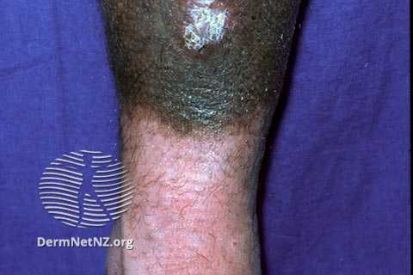
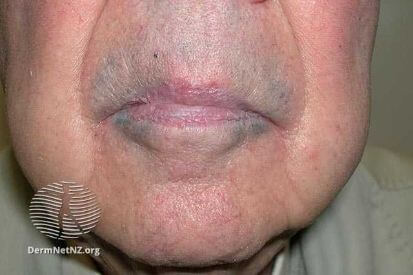
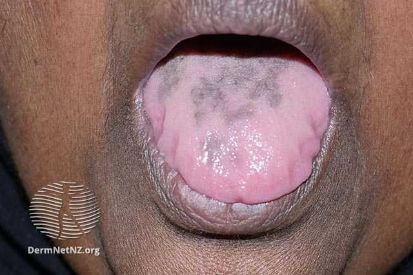
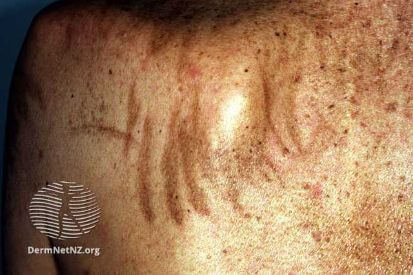
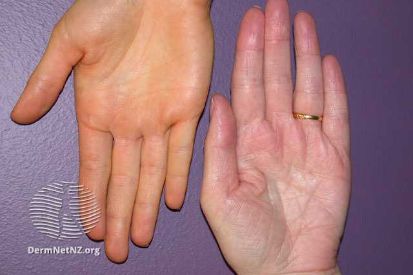
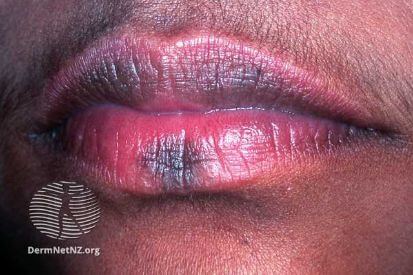
What are the Symptoms of Skin Discoloration?
- Hyperpigmentation characterized by darkened areas.
- Hypopigmentation, presenting as lighter skin.
- Redness or red discoloration due to increased blood flow to the affected areas.
- Poor circulation may result in a bluish or purple hue.
- Jaundice can cause a yellow discoloration of the skin.
- Skin conditions like melasma or fungal infections can lead to irregular, patchy discoloration with defined borders.
Causes of Skin Discoloration
- Excessive melanin production is a common cause, often triggered by prolonged sun exposure, inflammation, or hormonal fluctuations.
- Conditions like vitiligo, an autoimmune disorder where melanocytes are destroyed, or certain infections, such as pityriasis alba, contribute to lighter patches as melanin production diminishes.
- Inflammatory skin conditions, like rosacea or dermatitis, cause increased blood flow to affected areas, resulting in red discoloration.
- Conditions affecting blood circulation, such as venous insufficiency or bruising, can manifest as a bluish or purple tinge. Reduced oxygen supply to the skin contributes to this discoloration.
- Elevated bilirubin levels, often indicative of liver dysfunction or certain blood disorders, lead to jaundice, causing a yellow discoloration of the skin.
How to Prevent Skin Discoloration
- Sun Protection: Shielding your skin from excessive sun exposure is key to preventing hyperpigmentation. Regularly using broad-spectrum sunscreen with a high SPF, wearing protective clothing, and seeking shade during peak sun hours can safeguard against UV-induced skin discoloration.
- Healthy Skincare Practices: Establishing a skincare routine that includes gentle cleansing, moisturizing, and avoiding harsh products helps maintain skin health. For those prone to inflammation, using skincare products designed for sensitive skin can minimize the risk of redness or erythema.
- Maintaining Skin Health: Addressing underlying health issues, performing regular at-home skin checks, and scheduling annual Total Body Skin Exams with our providers will ensure any issues that need dermatologic care are taken care of.
Skin Discoloration FAQs
Yes, sun exposure can contribute to skin discoloration. Protect your skin by using sunscreen, wearing protective clothing, and seeking shade, especially during peak sun hours.
The reversibility of skin discoloration depends on the cause. Dermatologists can recommend treatments such as topical creams, laser therapy, or chemical peels based on the specific condition.
Skin discoloration can affect people of all skin types, but it may be more noticeable in individuals with lighter or darker skin tones. Certain conditions may be more prevalent in specific ethnic groups.
Normal changes in skin color may occur due to aging or temporary factors. If you observe sudden or unusual discoloration, or if it is accompanied by other symptoms, consult a dermatologist for a professional assessment.
Hormonal changes, such as those during pregnancy, can contribute to skin discoloration, known as melasma. It is relatively common, and dermatologists can provide guidance on managing and treating it.
Watch: Sun Protection Advice
How to Treat Skin Discoloration
- Topical Treatments: Our dermatologists often prescribe topical medications containing ingredients like hydroquinone, retinoids, or corticosteroids to regulate melanin production, reduce inflammation, or promote skin cell turnover, thereby addressing hyperpigmentation or hypopigmentation.
- Chemical Peels: Chemical peels involve the application of chemical solutions to exfoliate the skin's top layer, promoting the growth of new, evenly pigmented skin. This is effective in treating hyperpigmentation, fine lines, and uneven skin tone.
- Laser Therapy: Laser treatments target specific pigments or blood vessels, addressing conditions like hyperpigmentation, vascular-related discoloration, or unwanted tattoos. Laser technology allows precise targeting with minimal damage to surrounding tissues
- Microdermabrasion: This non-invasive procedure involves exfoliating the skin's outer layer, helping improve the appearance of melasma, age spots, and other forms of hyperpigmentation.
- Cryotherapy: Our dermatologists may use cryotherapy to remove certain types of skin growths, lesions, or pigmented areas by freezing them with liquid nitrogen.
- Microneedling: This technique involves creating micro-injuries in the skin to stimulate collagen production and improve the appearance of pigmentation irregularities.
Related Blog Posts
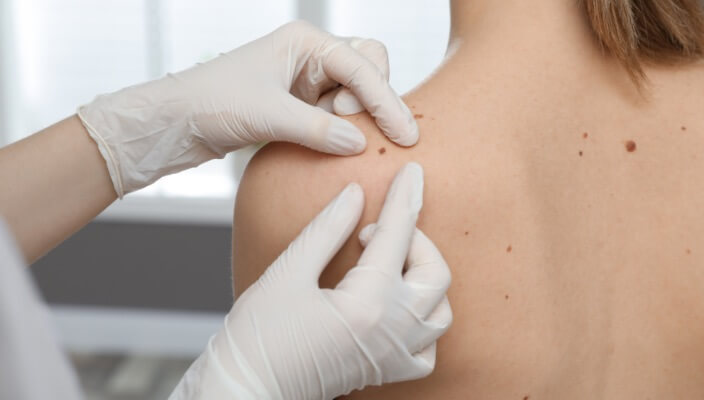
- General Dermatology
- Skin Exams
Preparing for your first dermatology appointment is important because it ensures everything goes as smoothly as possible and that your doctor is up-to-date on the status of your overall health and wellbeing. Here are our expert tips.
Read More
- General Dermatology
- Cosmetic Treatments
Explore the myriad benefits of laser treatments. Learn how these advanced procedures can effectively address various skin concerns, from acne scars to unwanted hair, providing you with smoother, rejuvenated skin.
Read More
- Skin Care
- Cosmetic Treatments
Unlock the secrets to achieving radiant, glowing skin. Explore expert tips and skincare routines tailored to nourish and revitalize your complexion, empowering you to embrace a luminous and youthful appearance.
Read MoreFeatured Products

Epionce Purifying Spot Gel
Clinically proven spot treatment rapidly targets stubborn acne blemishes on the face and body. Penetrates pores to control acne blemishes and help prevent new acne blemishes from forming. Use with Epionce Purifying Wash for best results.

iS Clinical Extreme Protect SPF 40
Extreme Protect SPF 40 is a multilevel environmentally protective treatment formula featuring our proprietary Extremozyme® technology combined with scientifically advanced all-physical sunscreen actives; transparent micronized Zinc Oxide and transparent micronized Titanium Dioxide. This antioxidant-rich state-of-the-art broad spectrum UVA/UVB sunscreen helps support optimal skin health as it moisturizes and protects. 100 g e Net wt. 3.5 oz.


